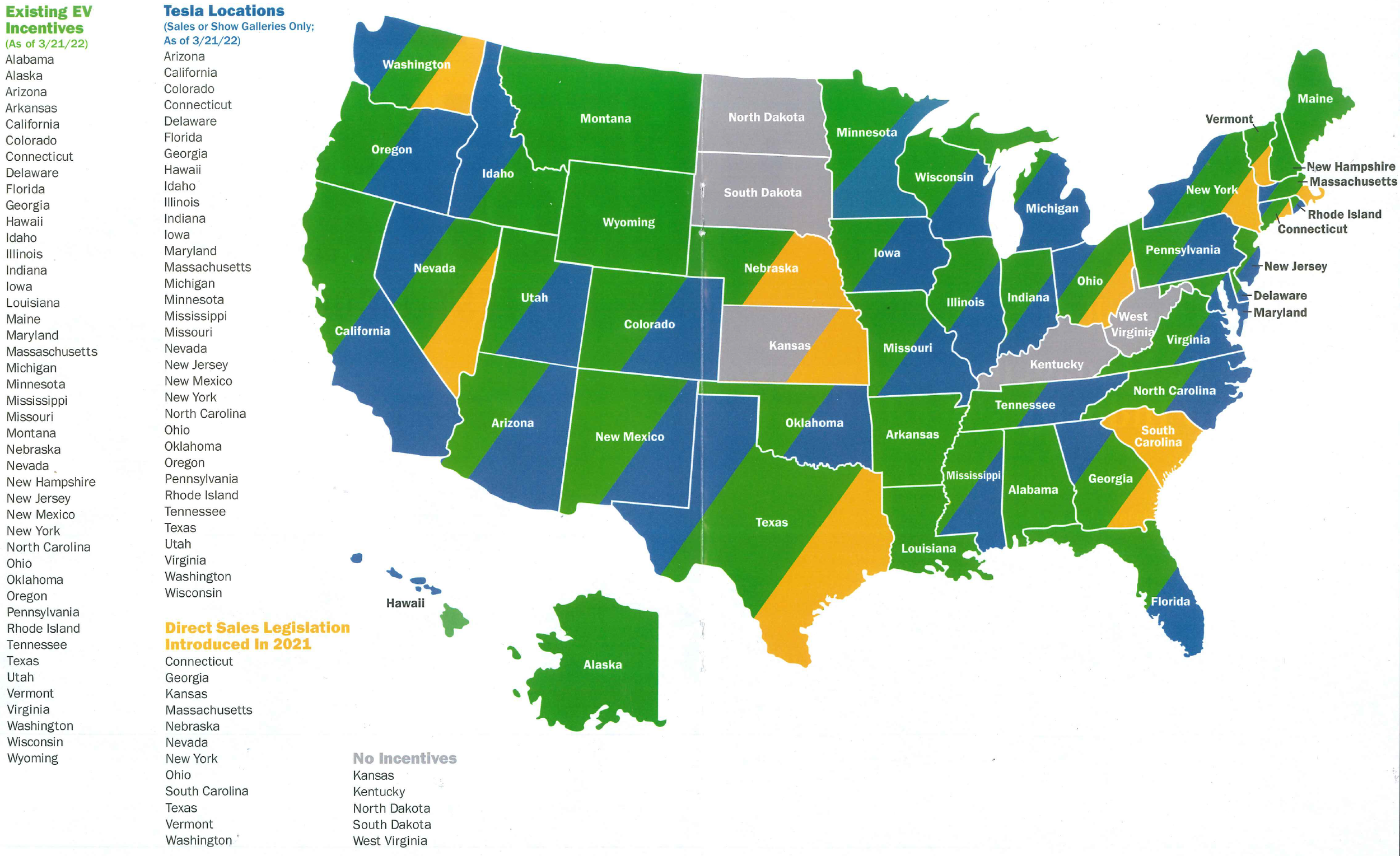State-by-State: Supporting EVs, allowing Direct Sales
Our friends at NJ Car (the New Jersey Coalition of Automotive Retailers) have developed a map showing the states that have, usually through legislation, approved electric-vehicle purchase incentives as well as those states that allow for (or have pending legislation regarding) direct sales from manufacturers.
Direct sales are the ability of a manufacturer to sell its vehicles directly to consumers bypassing the automotive retail franchise system. For consumers, the franchise system creates competition within and among brands—think of the multiple local and regional options you have to choose from to buy a vehicle from the same brand. The result is lower prices, and extra accountability for consumers in warranty and safety recall situations.
Direct sales are allowed in Virginia, with restrictions to ensure a level playing field. Tesla, Lucid, Rivian and other new EV entrants are allowed to sell direct in Virginia, and do, provided there is no franchised dealer available to operate the store. Carvana — and Richmond, Va.-based national retailers like CarMax and Carlotz — are by law dealers who play by the same rules as franchised dealerships.
Virginia has an EV incentive…but it has no funding. In the most recent General Assembly session, neither the House nor Senate budget proposals committed two-year funding for the EV rebate program. Virginia has approved on-the-hood rebates to reduce the cost of EVs — $2,500 rebate for the purchase of a new or used EV, along with an additional $2,000 for lower income purchasers. This is a critical part of efforts to spur the adoption of EVs. However, sufficient funding for this program would run into the tens of millions of dollars. With no state funding, there’s no state rebates.
Here’s a look at the fast-evolving landscape of auto sales in the U.S.

